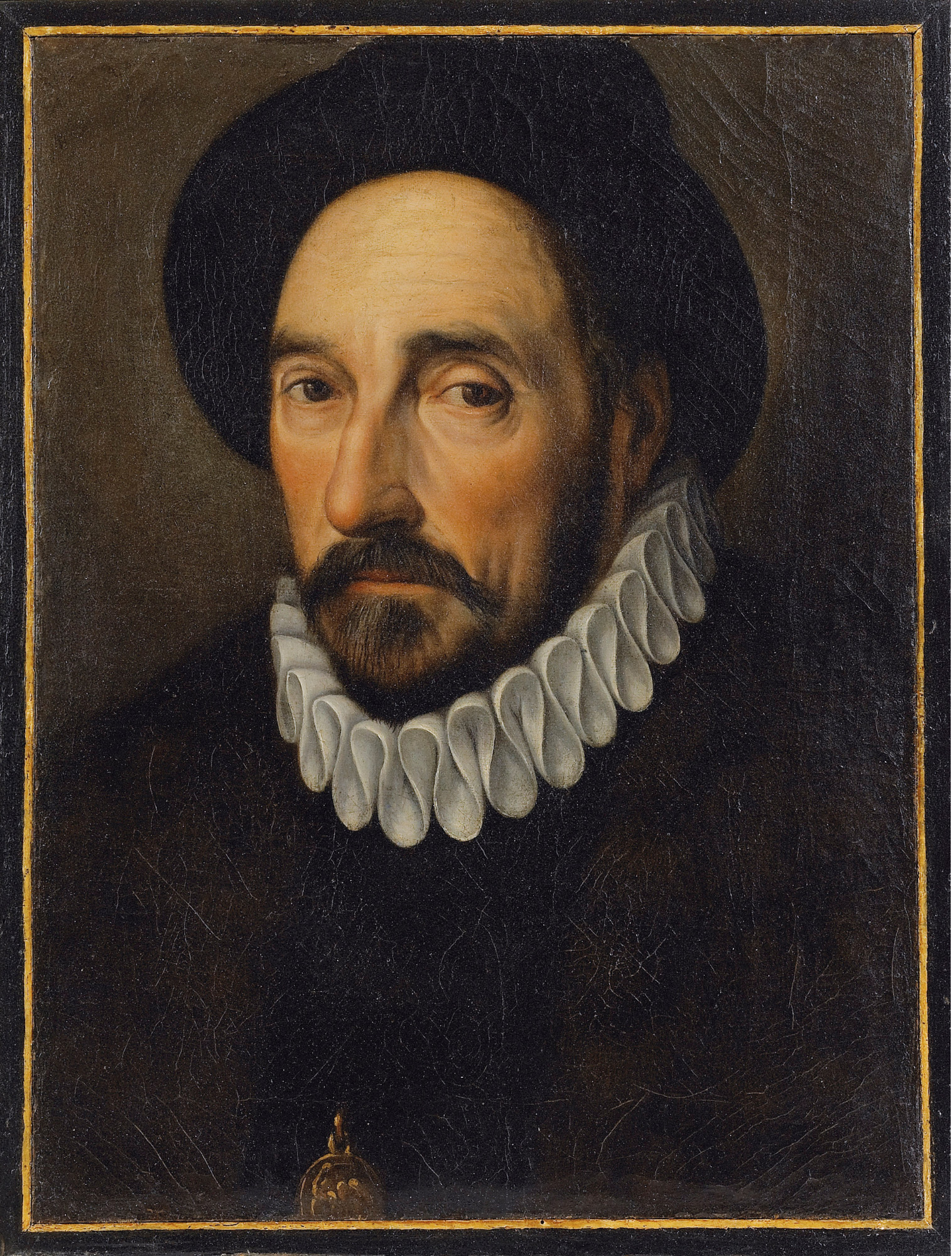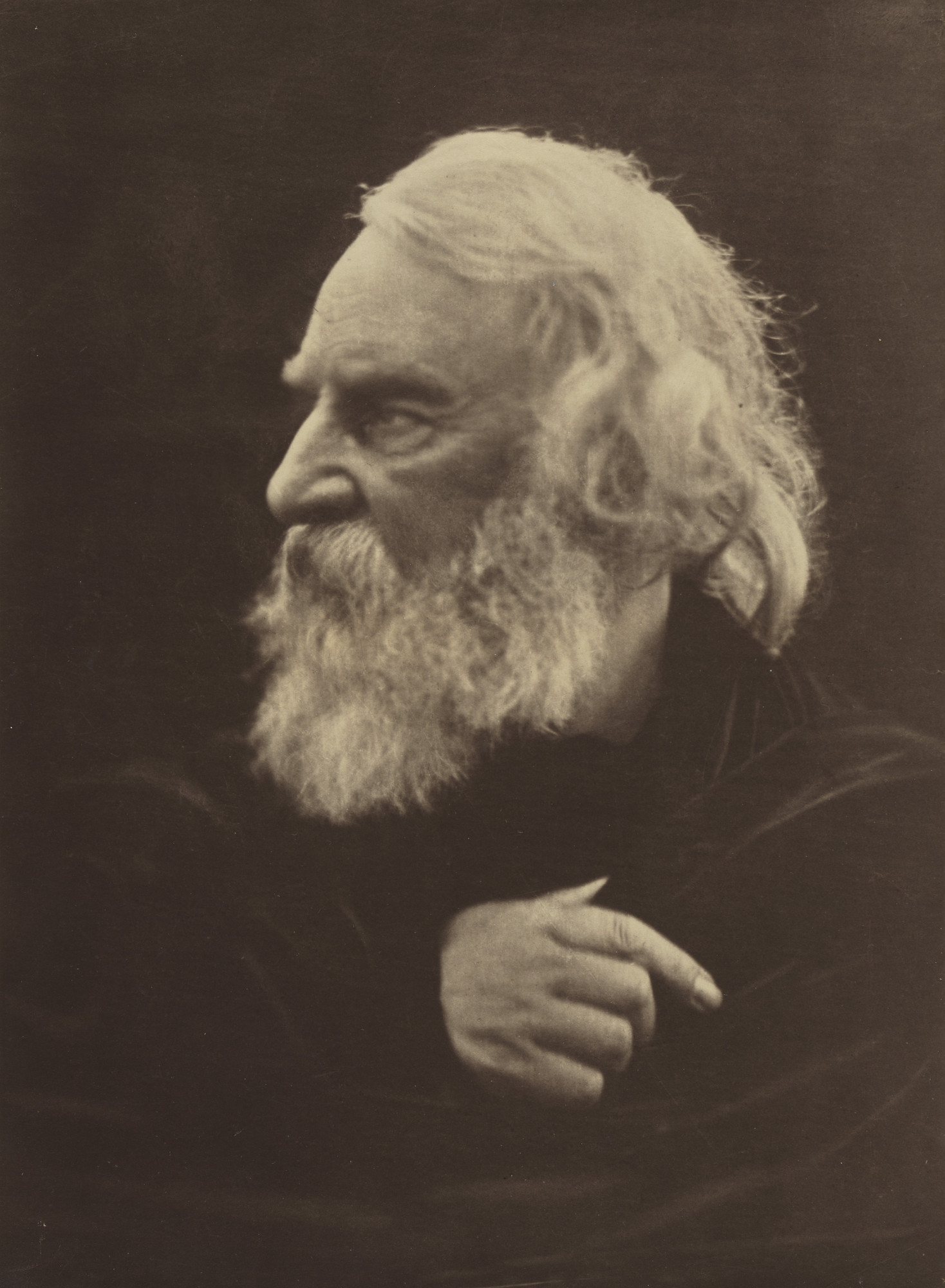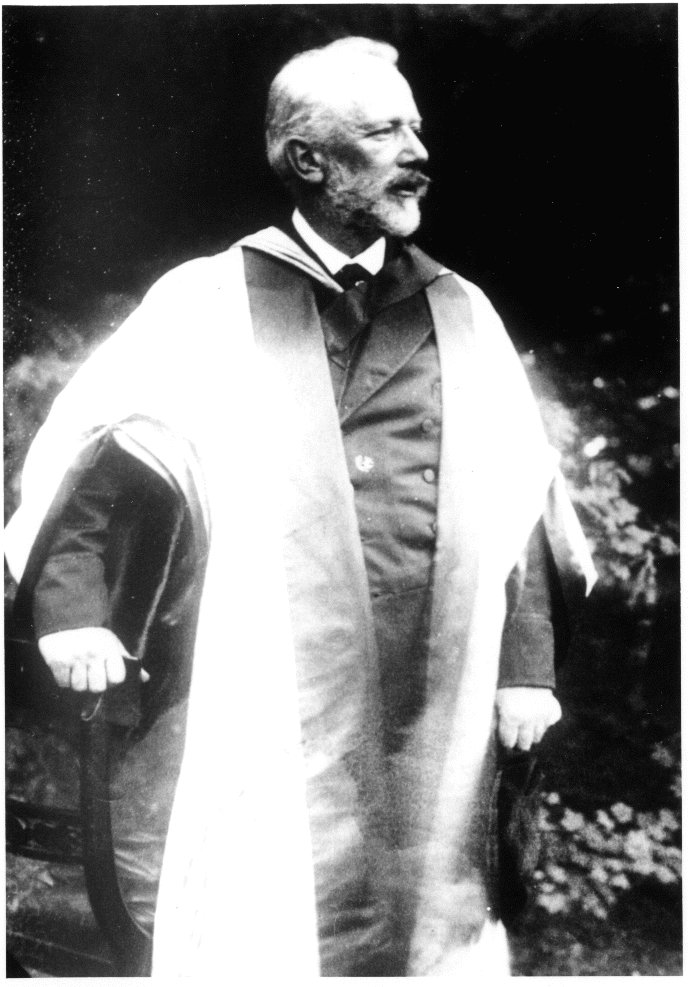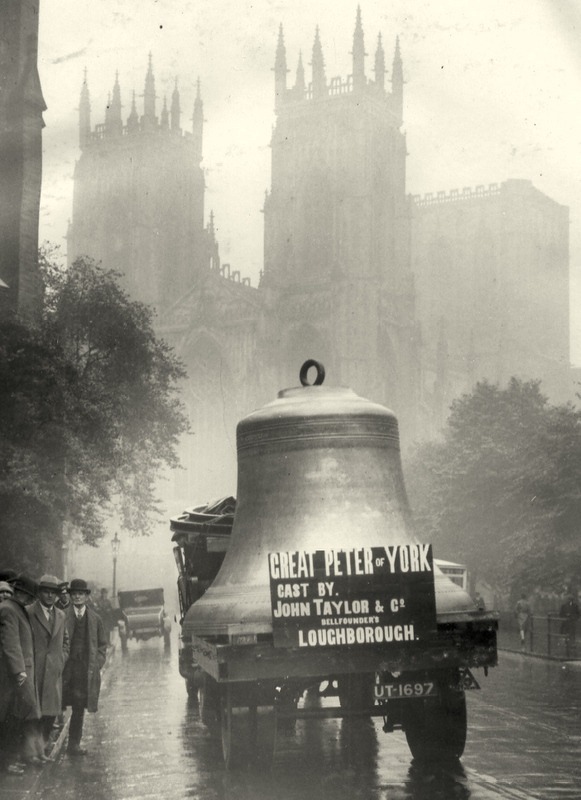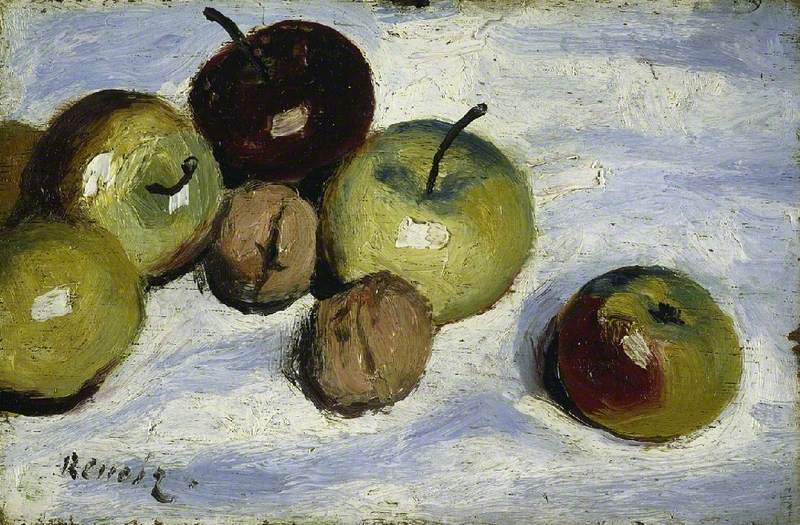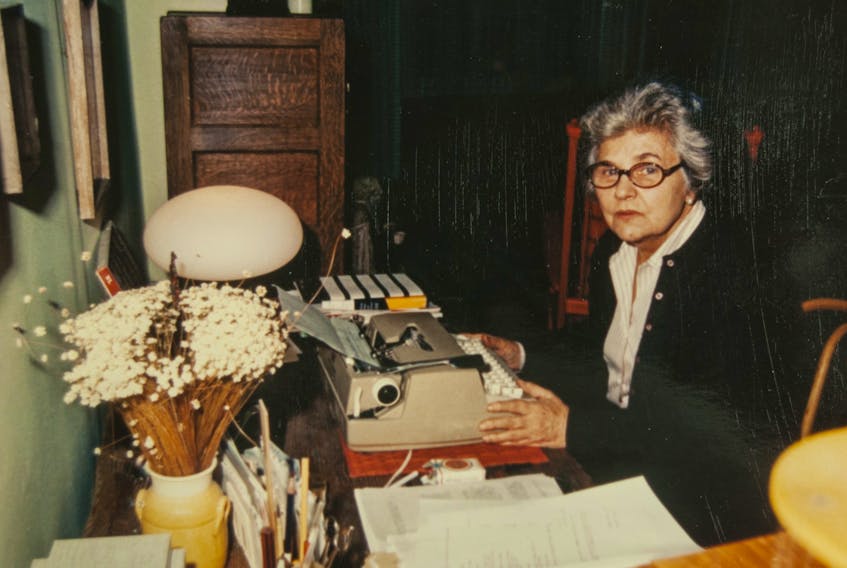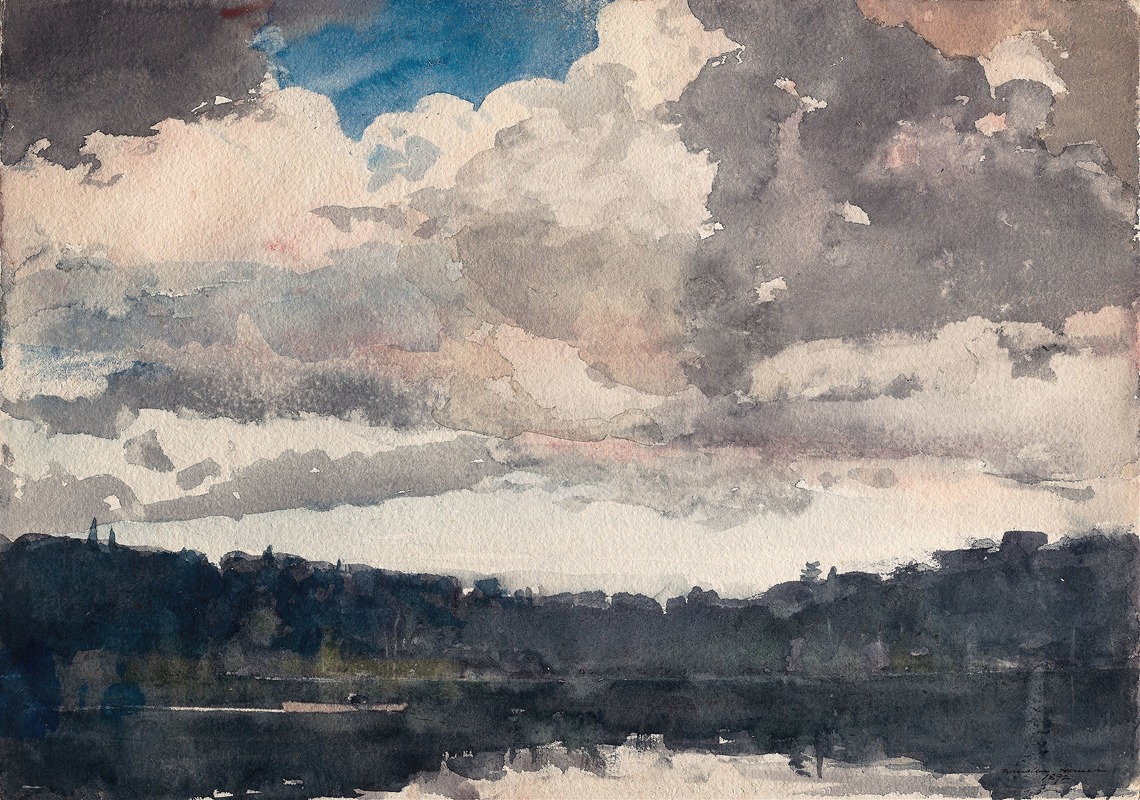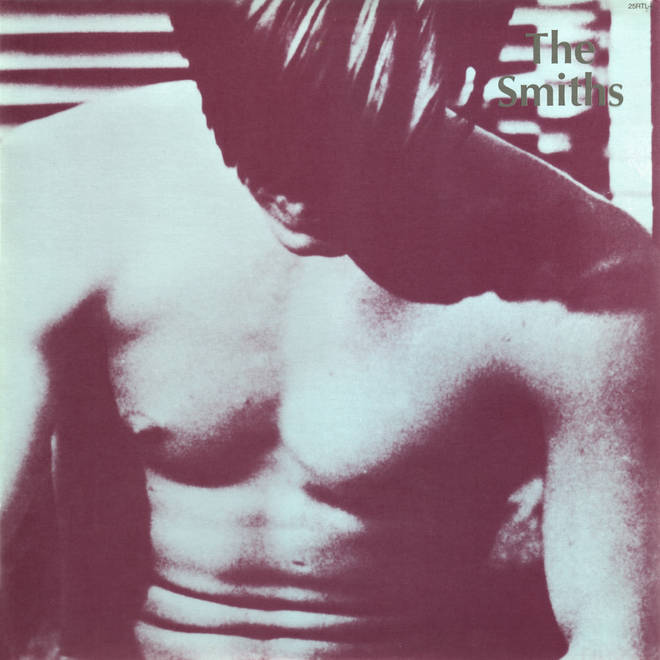28 February 2023
Enormous.
Fergus Henderson, Trevor Gulliver, and education ...
At the heart of their relationship – which began through an introduction from an olive oil seller and, inevitably, a long lunch – is a shared faith in the sustaining joys of life. Both men are steeped in what you might call the rigour of gastronomic pleasure. The articles of St John’s faith are all about constancy and conviction, doing good things extremely well. When they first opened the restaurant, with its menu of tripes and bone marrow and welsh rarebit and addictive custard, they were accused of being 200 years out of date, which they took as an enormous compliment.One of their key beliefs is that a great restaurant should insist on making a human shape to the day, beginning early with the baking of bread, and ending late with a final glass of something special. In an age of working lunches and clean eating, they have held fast to that principle. As a young man Henderson studied architecture – both his parents were architects – and he carried a profound understanding of structure into his eventual vocation. The foundations of that, he suggests to me as he works, were boyhood holidays to the Dordogne, where each morning the family would crack open the Michelin guide and ask the only two questions that ever really mattered: “Where shall we have lunch?” and “Where shall we have dinner?”
Familiarity.
Unknown, Portrait de Montaigne au Chapeau, 1820
Michel do Montaigne, born on this day in 1533
Insubordinates.
The Smiths is right there, insubordinates of an accidental moment in days when there is no sign anywhere of independent artists or a disconnected view.
Morrissey, from Autobiography
27 February 2023
Happy Birthday, Longfellow
Cameron, Henry Wadsworth Longfellow, 1868
The LADDER of ST. AUGUSTINE
Saint Augustine! well hast thou said,
That of our vices we can frame
A ladder, if we will but tread
Beneath our feet each deed of shame!
All common things, each day's events,
That with the hour begin and end,
Our pleasures and our discontents,
Are rounds by which we may ascend.
The low desire, the base design,
That makes another's virtues less;
The revel of the ruddy wine,
And all occasions of excess;
The longing for ignoble things;
The strife for triumph more than truth;
The hardening of the heart, that brings
Irreverence for the dreams of youth;
All thoughts of ill; all evil deeds,
That have their root in thoughts of ill;
Whatever hinders or impedes
The action of the nobler will; —
All these must first be trampled down
Beneath our feet, if we would gain
In the bright fields of fair renown
The right of eminent domain.
We have not wings, we cannot soar;
But we have feet to scale and climb
By slow degrees, by more and more,
The cloudy summits of our time.
The mighty pyramids of stone
That wedge-like cleave the desert airs,
When nearer seen, and better known,
Are but gigantic flights of stairs.
The distant mountains, that uprear
Their solid bastions to the skies,
Are crossed by pathways, that appear
As we to higher levels rise.
The heights by great men reached and kept
Were not attained by sudden flight,
But they, while their companions slept,
Were toiling upward in the night.
Standing on what too long we bore
With shoulders bent and downcast eyes,
We may discern — unseen before —
A path to higher destinies,
Nor deem the irrevocable Past
As wholly wasted, wholly vain,
If, rising on its wrecks, at last
To something nobler we attain.
Henry Wadsworth Longfellow
26 February 2023
Happy Birthday, Cotton
Paul Cotton was born on this day in 1943.
"Indian Summer," with Poco ...
We're now featuring bar cheese, braunschweiger, and rye toast on the salad bar.
Eternity.
Books do not perish like humankind. Of course we commonly see them broken in the haberdasher's shop when only a few months before they lay bound on the stationer's stall; these are not true works, but mere trash and newfangleness for the vulgar. There are thousands of such gewgaws and toys which people have in their chambers, or which they keep upon their shelves, believing that they are precious things, when they are the mere passing follies of the passing time and of no more value than papers gathered up from some dunghill or raked by chance out of the kennel. True books are filled with the power of the understanding which is the inheritance of the ages: you may take up a book in time, but you read it in eternity.
Peter Ackroyd, from The House of Doctor Dee
Peaceful.
Bonneton, La Rue de la Montagne, Saint Geneviève, 1900
Nothing can be as peaceful and endless as a long winter darkness, going on and on, like living in a tunnel where the dark sometimes deepens into night and sometimes eases to twilight, you're screened from everything, protected, even more secluded than usual.
Tove Jansson
Morrissey.
Nature always waits in the wings and the winds, ready to pounce with all of its power just at that sloppily contented hour when you foolishly assume it to be plainly tired out. Narcissistic humans do their quite pathetic best to kill nature off, oblivious to their self-reliance on its upkeep, yet nature will only take so much bureaucratic bullying before it snaps a deadly snap - for it does not need your approval, your organised banditry, your prepubescent social laws, your trades of cheapening commerce, your militant preachment, your apologies or blind belief of superiority, as if a presidential seat gives you an intolerable presumption of dominance over this earth's terrain! Watch, wait, and listen, and soon you'll be bitten.
Morrissey
Sovereignty.
Carracci, Apostles around the Empty Sepulchre (detail), 1605
Beauty is a form of Genius -- is higher, indeed, than Genius, as it needs no explanation. It is one of the great facts of the world, like sunlight, or springtime, or the reflection in the dark waters of that silver shell we call the moon. It cannot be questioned. It has divine right of sovereignty. It makes princes of those who have it.
Oscar Wilde, from The Picture of Dorian Gray
Mozart, Great Mass in C minor, K. 427/417a
This is the Laudamus te sung by Roberta Mameli, with Ton Koopman and l'Orchestra di Santa Cecilia ...
When.
Renoir, Untitled, n/d
When I've painted a woman's bottom so that I want to touch it, then it is finished.
Pierre-Auguste Renoir
Marvel.
You have lost your reason and taken the wrong path. You have taken lies for truth, and hideousness for beauty. You would marvel if, owing to strange events of some sorts, frogs and lizards suddenly grew on apple and orange trees instead of fruit, or if roses began to smell like a sweating horse; so I marvel at you who exchange heaven for earth. I don't want to understand you.
Anton Chekhov, from "The Bet"
Predictable.
Now all human beings, whatever their condition, are social animals, and can live with themselves only if they also live with others. There is implanted in us the need to join things, to be a part of some larger and justifying enterprise, which will ennoble our small endeavours and protect us from the sense that we are ultimately alone. The deficit of membership must therefore be made good, but in another way - without the rite of passage to a higher or more responsible condition. Hence new forms of ‘joining in’ arise. Unlike armies, schools, scout troupes, churches and charities, these new forms of joining in need not involve participation - unless of a rough and undemanding kind that imposes no discipline on those who opt for them. They centre on spectacles rather than activities.The paradigm instance is the fan club. The modern adolescent will follow the actions of his favoured team or group or idol, and adopt those actions as his own. Hence the emergence of professional sport as a central drama in popular culture. Football, for example, has lost its original character as a form of recreation and become instead a spectacle, through which the fans rehearse their social identity, and achieve a kind of substitute form of membership, not as active participants in a real community, but as passive respondents to the virtual community of fans. The fan is, in some sense, a part of the group, in just the way that the football supporter is a part of his team, bound to it by a mystical bond of membership. Nick Hornby has expressed the point in words that deserve to be quoted:One thing I know for sure about being a fan is this: it is not a vicarious pleasure, despite all appearances to the contrary, and those who say they would rather do than watch are missing the point. Football is a context where watching becomes doing....when there is some kind of triumph, the pleasure does not radiate from the players outwards until it reaches the likes of us at the back of the terraces in a pale and diminished form; our fun is not a watery version of the team’s fun, even though they are the ones that get to score the goals and climb the steps at Wembley to meet Princess Diana. The joy we feel on occasions like this is not a celebration of others’ good fortune, but a celebration of our own; and when there is a disastrous defeat the sorrow that engulfs us is, in effect, self-pity, and anyone who wishes to understand how football is consumed must realise this above all things. The players are merely our representatives, chosen by the manager rather than elected by us, but our representatives nonetheless, and sometimes if you look hard enough you can see the little poles that join them together, and the handles at the side that enable us to move them. I am a part of the club, just as the club is a part of me... (Fever Pitch)Of course, the old tribal feelings are there just below the surface, waiting to be activated, and erupting every now and then with their usual tributes to the god of war. Football hooligans are not the peculiar and perverse criminals painted by the press. They are simply the most fully human of football fans - the ones who wish to translate the only experience of membership that has ever been offered to them, into the natural expression of a tribal right. In a sense, the membership offered to the fan - in which a mesmerised passivity neutralizes the desire for action - is the greatest safeguard we have, that modern societies will not fragment into tribal sub-groups, contending for scarce resources in the concrete jungle. And we should therefore be grateful for professional football, and for all the other ways in which an icon of membership is offered to those who might otherwise chase after some adolescent version of the real thing. For when tribal groups emerge in modern conditions, they take the form of teenage gangs, whose initiation ceremonies forbid the transition to the adult world, and are designed to arrest their members in a stage of rebellion. The first concern of such a gang is to establish a right to territory, by violently erasing all rival claims.The teenage gang is a natural (if destructive) response to a world in which the rites of passage into adulthood are no longer offered or respected. I do not say that such a world is a healthy one. But it is our world, and we have to make the best of it. Pop culture is an attempt to make the best of it - to make oneself at home in a world that is not, in any real sense, a home, since it has ceased to dedicate itself, as a home must dedicate itself, to the task of social reproduction. Home, after all, is the place where parents are. The world displayed in the culture of youth is a world from which the parent have absconded - as these days they generally do. This culture aims to present youth as the goal and fulfilment of human life, rather than a transitional phase which must be cast off as an impediment once the business of social reproduction calls. It promotes experiences which can be obtained without undertaking the burdens of responsibility, work, child-rearing and marriage. Hence sex, and especially sex divorced from any long-term commitment, becomes of paramount importance; so do experiences which involve no cost in terms of education, moral discipline, hardship or love - the paradigm being drug-taking, which has the added advantage that it shuts out the adult world completely, and replaces it with a cloud of wishful dreams. When the adult world is mentioned, it is in order to pour scorn on it as a delusive fiction or a source of tyrannical constraints.Youth culture is therefore inherently transgressive. It announces itself aways as radical, disconcerting, infuriating, disorienting and lawless. The group Prodigy, currently top of the charts with "Slap My Bitch Up", makes the point explicitly in its techno-slam entitled "Their Law": i.e., the law of adults, which is there to be trampled on. But the explicit incitement contained in such a number should not blind us to the fact that transgression is also institutionalised by pop, so as to become a new conformism. Future Bitch, for example, announcing its debut at the Ministry of Sound, declares its aim "to disorientate its audience, pushing the current cultural scene to its limits and towards the millenium." Future Bitch, it goes on, "is challenging, radical, disconcerting, stimulating, unpredictable, subliminal and unprecedented". And what could be more predictable than that?
Store-House.
You ask if your verses are good. You ask me this, and have asked others before me. You send them to journals. You compare them with other poems, and are anxious when certain editors reject your efforts. Now (since you would have me advise you) I beg you to forego all this. You are looking outwards, and that above all things you should avoid right now. No one can advise or help you, no one. There is but the one remedy. Go within. Find the reason that you write; see if its roots lie deep in your heart, confess to yourself you would die if you could not write. This above all, ask yourself in the silence of night: must I write? Dig deep for an answer. And if it should be in the affirmative, if you can meet this solemn question with a strong and simple I must, then construct your life in accord with that need; your life in its most trivial, its least important hour, must be sign and witness to this urge.
Then draw closer to Nature. Then, seek to say, as if you were the very first to do so, what you see, experience, love, and lose. Don’t write love poems; avoid those forms that are too common and ordinary; they are the hardest, since it takes great and mature strength to create something of one’s own where a fine and brilliant tradition already exists. Deliver yourself from these general themes and choose those that your own life offers you, day by day; describe your sorrows and desires, your passing thoughts and belief in some kind of beauty – describe all these, with quiet, humble, heartfelt sincerity, and use the things around you to express yourself, the images from your dreams, and the objects of your memory. If your everyday life seems impoverished, don’t blame it; blame yourself, say to yourself that you are not enough of a poet to invoke its riches; since for the creative there is no such thing as poverty, no poor or indifferent place. And even if you found yourself in prison, one whose walls prevented all sound reaching you from the outside world – would you not still possess your childhood, that precious wealth, that store-house of memories? Turn your attention there. Try to raise the sunken sensations of that gigantic past; your personality will grow stronger, your solitude will expand and become a twilit dwelling where the noise others make will pass by, far away. And if from this turning within, from this immersion in your own world, poems arise, you will not even think to ask if your verses are good. You will not even seek to interest the journals in your work: since you will see them as your own dear natural possession, a part of your life, a voice therein. A work of art is good if it is born of necessity. It can only be judged by such an origin: and in no other way. That is why, my dear sir, I have only this advice: go into yourself and view the depths from which your life springs; there at the source you will find the answer to the question of whether you must create. Accept that answer as it is given, without seeking to interpret it. Perhaps you will find your calling as an artist. Take that fate upon yourself, then, and bear its burden and its greatness, without ever asking what reward might come from outside. For the creator must be a world unto themself, and find everything there within the self, and in that Nature to which they are connected.
Rainer Maria Rilke, from Letters to a Young Poet
Care.
Look! Look! Torey Akers shrieks that we can't make her care about Renoir ... but then wonders, Since when do Republicans care about painting?, eventually writing 4,550 words on the subject (the first of which is. "So").
You and your penis better listen up, bub.
Duruflé, Requiem, Op.9
The Choir of Trinity College Cambridge, directed by Stephen Layton, performs, featuring mezzo-soprano, Katherine Gregory, and baritone, Florian Störtz, Accompaniment by cellist, Myrtille Hetzel, and organist, Harrison Cole ...
25 February 2023
While.
Only music clarifies, reconciles, and consoles. It’s a faithful friend, protector, and comforter, and for its sake alone, life in this world is worth living. Who knows, perhaps in heaven there will be no music. So let us live on the earth while we still have life!
Peter Tchaikovsky
Great.
Housed in the North West Tower of York Minster, "Great Peter" is the fourth largest bell in England; the others being "Great Paul," at St. Paul’s Cathedral, "Great George," at Liverpool Cathedral, and "Big Ben," at Palace of Westminster.
Rather than being a part of the peal of change-ringing bells that are housed in the North East Tower though, Great Peter is the single bell that marks the hour at the culmination of the clock chime; the boom of its toll, so sonorous, it can be heard across the length and breadth of the city.
Depicted: Great Peter being delivered by Taylor’s Bell Foundry in 1927.
Thank you, londonista59
More at St. Mary's Episcopal Cathedral
Another.
Kurt points to wisdom from Henry Ford ...
If you keep on recording all of your failures you will shortly have a list showing that there is nothing left for you to try – whereas it by no means follows because one man has failed in a certain method that another man will not succeed.
Happy Birthday, Renoir
Renoir, Apples and Walnuts, 1870
There are quite enough unpleasant things in life without the need to manufacture more.
Pot.
From The Paris Review’s, “The Art of Poetry,” No. 27 ...
Elizabeth SpiresI heard a story that you once spent a night in a tree at Vassar outside Cushing dormitory. Is it true?Elizabeth BishopYes, it was me, me and a friend whose name I can’t remember. We really were crazy and those trees were wonderful to climb. I used to be a great tree climber. Oh, we probably gave up about three in the morning. How did that ever get around? I can’t imagine! We stopped being friends afterwards. Well, actually she had invited two boys from West Point for the weekend and I found myself stuck with this youth all in—[her hands draw an imagined cape and uniform in the air]—the dullest boy! I didn’t know what to say! I nearly went mad. I think I sort of dropped the friend at that point. I lived in a great big corner room on the top floor of Cushing and I apparently had registered a little late because I had a roommate whom I had never wanted to have. A strange girl named Constance. I remember her entire side of the room was furnished in Scottie dogs—pillows, pictures, engravings and photographs. And mine was rather bare. Except that I probably wasn’t a good roommate either, because I had a theory at that time that one should write down all one’s dreams. That that was the way to write poetry. So I kept a notebook of my dreams and thought if you ate a lot of awful cheese at bedtime you’d have interesting dreams. I went to Vassar with a pot about this big—it did have a cover!—of Roquefort cheese that I kept in the bottom of my bookcase. I think everyone’s given to eccentricities at that age. I’ve heard that at Oxford Auden slept with a revolver under his pillow.
24 February 2023
Happy Birthday, Homer
Homer, The Lone Boat, North Woods Club, Adirondacks,1892
Winslow Homer, born on this day in 1836.
A painter who begins and finishes indoors, that which is outdoors, misses a hundred little facts, a hundred little accidental effects of sunshine and shadow that can be reproduced only in the immediate presence of Nature. This making of studies and then taking them home is only half right. You get composition, but you lose freshness; you miss the subtle and, to the artist, the finer characteristics of the scene itself.
23 February 2023
Happy Birthday, Handel
Dandridge, G.F. Handel, 1730
From Aci, Galatea e Polifemo, HWV 49b, Roberta Mameli performs "Verso già l'alma col sangue" with la Barocca, under the direction of Ruben Jais ...
22 February 2023
21 February 2023
Happy Birthday, Auden
As a poet – not as a citizen – there is only one political duty, and that is to defend one’s language from corruption. And that is particularly serious now. It’s being so quickly corrupted. "Speech is the mother of thought, not the hand-maiden." When it is corrupted, people lose faith in what they hear, and that leads to violence. As a citizen obviously one has a host of political duties. The issues are too obvious to go into. But that’s as a citizen. My only duty as a poet is to defend the use of language.
W.H. Auden, born on this day in 1907
Bold.
Wyeth, Jupiter, 1998
From earthsky.org ...
Bright planets and the moon this week!Venus and Jupiter are the two brightest planets visible from Earth. And – throughout February 2023 – they’ve been easy to spot in the sunset direction during evening twilight. Dazzling Venus and bold Jupiter have crept closer together all month, with Venus shining as the brighter world. Around the evenings of February 21 and 22, you’ll see an even more spectacular scene in the evening twilight sky, as the young moon – a waxing crescent – joins the show.
20 February 2023
True.
George MacDonald Fraser on the (continued) offensiveness of the Good, Old Truth ...
We were freer by far 50 years ago - yes, even with conscription, censorship, direction of labour, rationing, and shortages of everything that nowadays is regarded as essential to enjoyment.We still had liberty beyond modern understanding because we had other freedoms, the really important ones, that are denied to the youth of today.We could say what we liked; they can't. We were not subject to the aggressive pressure of special interest minority groups; they are. We had no worries about race or sexual orientation; they have. We could, and did, differ from fashionable opinion with impunity, and would have laughed PC to scorn, had our society been weak and stupid enough to let it exist.We had available to us an education system, public and private, that was the envy of the world. We had little reason to fear being mugged or raped (killed in war, maybe, but that was an acceptable hazard).Our children could play in street and country in safety. We had few problems with bullies because society knew how to deal with bullying and was not afraid to punish it in ways that would send today's progressives into hysterics.We did not know the stifling tyranny of a liberal establishment, determined to impose its views, and beginning to resemble George Orwell's Ministry of Truth.Above all, we knew who we were and we lived in the knowledge that certain values and standards held true, and that our country, with all its faults and need for reforms, was sound at heart.Not any more. I find it difficult to identify a time when the country was as badly governed as it has been in the past 50 years.We have had the two worst Prime Ministers in our history - Edward Heath (who dragooned us into the Common Market) and Tony Blair. The harm these two have done to Britain is incalculable and almost certainly irreparable.Whether the public can be blamed for letting them pursue their ruinous policies is debatable.Short of assassination there is little people can do when their political masters have forgotten the true meaning of the democracy of which they are forever prating, are determined to have their own way at all costs and hold public opinion in contempt.I feel I speak not just for myself but for the huge majority of my generation who think as I do but whose voices are so often lost in the clamour.We are yesterday's people, the over-the-hill gang. (Yes, the old people - not the senior citizens or the time-challenged, but the old people.) Those of ultra-liberal views may take consolation from this - that my kind won't be around much longer, and then they can get on with wrecking civilisation in peace.But they should beware. There may well be more who think like me than the liberal Left establishment likes to think. When my views were first published in book form in 2002, I was not surprised that almost all the reviewers were unfavourable. I had expected that my old-fashioned views would get a fairly hostile reception, but the bitterness did astonish me.I had not realised how offensive the plain truth can be to the politically correct, how enraged they can be by its mere expression, and how deeply they detest the values and standards respected 50 years ago and which dinosaurs like me still believe in, God help us.
Introduced.
The world was introduced to The Smiths on this day in 1984.
And still we're asking, "What Difference Does It Make?" ...
Majesty.
The CD image remains heart-sinkingly abysmal compared to the majesty of the LP sleeve. These things count.
Morrissey
Undissected.
It is precisely the colouring, the atmosphere, the unclassifiable individual details of a story, and above all the general purport that informs with life the undissected bones of the plot, that really count.
J.R.R. Tolkien
Haydn, Symphony No. 6 in D major, "Le Matin", Hob. I:6
Giovanni Antonini leads Il Giardino Armonico ...
Happy Birthday, Pye
Arnold, Henry James Pye, 1808
A POETICAL ESSAY.
By gay Amusement's soul-subduing power
To chear the mournful or the vacant hour,
In fancy's freakful gambols to delight,
Or wage with active limbs the mimic fight,
In earlier times, to breasts mature unknown,
Were cares of playful infancy alone;
Nor did soft dissipation's art assuage
The toils of manhood, or the pains of age.
Not from mankind alone these rules we draw,
Oft warp'd by prejudice from nature's law:
But brutes, who with unbiass'd step pursue
The eternal canons they from instinct drew,
Confirm beyond a doubt this striking truth,
That sports are native attributes of youth.
The lamb frisks wanton o'er the dewy ground,
The kitten hunts its tail in fruitless round;
But o'er the down the ewes all pensive stray,
And grave grimalkin silent waits her prey,
Save when maternal fondness bids her share
The frolick pastimes of her youthful care.
Even so, ere social compact bids arise
Unnumber'd wants, and every want supplies,
Of childhood's joys no evanescent trace
Delights man's sullen solitary race;
For, if his eager footstep haunt the wood,
He urges not the chace for sport but food;
Fierce as the hungry pard, with ravening haste,
Joyless and fell, he prowls the gloomy waste.
And if perchance in polish'd times we find
Pleasure more inmate of the female mind,
Say what forbids our serious thought to draw
The smiling preference from nature's law,
And view the mother's fondness that beguil'd
By kindred sports the sorrows of her child?
Far, far from me be that malignant train,
Who scowl severe on pleasure's silken reign;
Oft may her magic touch with sportive power
Chear the dull languor of the tedious hour;
For hours there are, when the o'er-labor'd sense
Shrinks from the serious toil or thought intense.
Oft to Amusement's visionary sway
The real ills that poison life give way.
In Lydia's plains, so tells the enchanting page
Of Hist'ry's aweful sire the Carian sage,
In Lydia's plains, what time with wasting hand
Remorseless famine ravaged all the land,
And the starv'd native on Pactolus' shore
Ey'd the shrunk wave and curs'd the useless ore,
By sports of art inventive fancy sought
To turn from pinching want the tortur'd thought;
Their fascinating power the mind engag'd,
And hunger for a while unheeded rag'd.
How will Amusement's foes delight to trace
The dreary leisure of the savage race,
Or with imagination's eye pervade
The lonesome refuge of the Indian's shade,
When all the labors of the chace are o'er,
Hunger appeas'd, and sleep can lull no more!
Or let them picture to their aching sight
The lengthen'd horrors of a polar night,
Where, till returning spring dissolves the snow,
No dawning light shall gild the mountain's brow,
Nor can the native ply his needful toil,
Chace the rough bear or turn the ungrateful soil;
Chearless and unemploy'd, condemn'd to wear
In listless apathy the wintry year.
When agriculture to the fertile plain
Lur'd from the barren waste the improving swain,
Soon partial property, with selfish plan,
Her favorites cull'd, and sorted man from man.
Then lusty labor bade the harvest rise
To sate the lazy owner's pamper'd eyes;
Who, deeming useful toil beneath his care,
Pass'd all his hours in indolence and war,
Or sought in peace by dangerous sports to gain
A mimic semblance of the martial plain,
Rov'd 'mid the forest haunts with wild delight,
And wag'd with beasts of prey the unequal fight,
Or with his fellow warriors joy'd to wield
In friendly strife the weapons of the field,
In sportive exercise the javelin threw,
Pois'd the long lance, or bent the twanging yew.
Hence Grecia's chiefs the prize triumphant bore
From Pisa's groves or Isthmus' wave-worn shore,
While garlands of eternal fame inspire
The kindling raptures of a Pindar's lyre,—
Hence in the tournament the mail-clad knight
Provok'd his peers to dare the listed fight,
Urg'd his barb'd courser to the swift career,
And broke in beauty's cause the ashen spear,
While to the warbling harp's responsive string,
Applauding bards the victor's triumph sing.
Nor was the humbler swain, who till'd the ground,
Condemn'd to labor's unremitting round;
For, when the plenteous produce of the soil
Stor'd in full garners pays his annual toil,
Or when their fleecy weight his flocks resign,
Or laughing autumn swells the purple vine,
As pious cares his grateful mind employ,
He consecrates the hallow'd hours to joy;
Stretch'd on the turf the blazing hearth around,
While by the talking eld the bowl is crown'd,
With sinewy limbs the rustic youth contend,
Or to the mark the unerring javelin send,
And from the village maid's approving eyes
The jocund victor gains the fairest prize.
When opulence assum'd his golden reign,—
With luxury and science in his train,
And beauty, man's fastidious empire o'er,—
Join'd in the scenes she only judg'd before,
The vacant hours to gentler toils invite,—
Than the rude image of the bleeding sight;
Each coarse delight to softer joy gives place,
And sports of labor yield to sports of grace.—
Responsive to the lyre's inspiring sound,
In mingled measure now they beat the ground,
Now on the chequer'd field with silent care
Attentive wage the sedentary war.
Even manlier exercise the arts despoil
Of half its danger, and of half its toil:
No more the knight, in shining armour dress'd,
Opposes to the pointed lance his breast;
Scarce does the skilful fencer's bosom feel
The pliant pressure of the bated steel;
For the stupendous quoit or craggy stone,
Afar with emulous contention thrown,
Deliver'd with inferior force is seen
The bowl slow-rolling o'er the shaven green;
Or else, defended from inclement skies,
The ball rebounding from the racket flies;
Or o'er the cloth, impell'd by gentler skill,
The ivory orbs the net insidious sill.
Even in those rougher transports of the chace,
Where nature's genuine form we seem to trace,
And art appears unequal to supply
Assistance to the calls of luxury,
For the wild tenants of the wood and plain
Still their primæval character retain,
Still will their wiles the experienc'd hunter foil,
And still fatigue attend on cold and toil;
Even in the forest-walks has polish'd care
Taught healthful sport a gentler form to wear.
Swoln opulence is not content to stray
In anxious search thro' many a tedious day,
Where constant hopes the eager thought employ,
And expectation doubles every joy:
But the wing'd tribe, by care domestic bred,
Watch'd with attention, with attention fed,
Where'er the sportsman treads in clouds arise,
Prevent his wish, and sate his dazzled eyes;
And each redoubled shot with certain aim
Covers the ensanguin'd field with home-bred game—
Transporting joy! to vulgar breasts unknown,
Save to the poulterer and cook alone;
Who search the crouded coop with equal skill,
As sure to find, almost as sure to kill.
No more the courser with attentive eyes
'Mid the rank grass and tangled stubble pries,
Till, many an hour in watchful silence pass'd,
A moment's frenzy pays his toil at last.
No chearful beagle now, at early dawn,
Explores with tender nose the dewy lawn,
Avows the recent path with carol sweet,
And trails the listening leveret to her seat;
Stretch'd on the couch the lazy sportsmen lie,
Till Sol ascending gilds the southern sky,
And leave the hind, with mercenary care,
To seek the refuge of the lurking hare.
Dullest of all pursuits, why mention here
The chace inglorious of the stall-fed deer?
When even that generous race who justly claim
Toilsome pre-eminence of sylvan fame,
Who joy to lay with sanguine vengeance low
The sheepfold and the henyard's treacherous foe;
Even they who us'd, ere morn's first opening light,
To trace the skulking felon of the night,
With slacken'd vigor now their sports delay,
Till Phoebus pours the orient beams of day.
Nor does the drag, evaporating soon,
Beneath the warmer influence of noon,
Frustrate their hopes; for, bearing in their mind
That well-known adage, "Those that hide can find,"
Sure of success, the covert they explore,
For foxes turn'd adrift the night before.
But say, is this the pastime of the fields,
Where panting expectation rapture yields?—
Coldly the certain victim we pursue,
And losing doubt we lose the transport too.
If such the texture luxury has thrown
O'er scenes confin'd to ruder man alone,
What shall we find them when the gentler fair
Mix with the band and every pleasure share?—
Not those bold dames who join the rustic train,
Chear the staunch hound, the fiery courser rein;
Or those to point the feather'd shaft who know,
And joy "to bear, and draw the warrior bow."
O may Britannia's nymphs such arts despise,
Content alone to conquer with their eyes!
For Omphale as ill the lion's spoil
Becomes, as Hercules the distaff's toil;
But such as haunt the seats of courtly fame,
Where female charms the first attention claim,
And their contending powers the arts employ
To ravish every sense with every joy.—
The splendid theatre's refulgent round,—
With pomp, with elegance, with beauty crown'd.—
Not that I mean whose homelier scenes invite
To tales of grief, of humour, of delight,
Where Shakespear's honied style enthralls the ear,
Wakes the loud laugh, or draws the heart-felt tear—
Shakespear! ador'd in these degenerate days,
To whom we hymns inscribe, and temples raise,
Worship his image, and neglect his plays.—
Ah! who the evening's festal hours will quit
For scenes of tragic woe or comic wit?—
Scenes of a purer polish must engage
The loose attention of a courtly age;
Scenes where satiric point ne'er gives offence,
Or verse disturbs its placid stream with sense;
Where from Hesperian fields the eunuch train
Trill with soft voice the unimpassion'd strain,
In measur'd cadence while the dancers art
Wakes without words the feelings of the heart.
Delightful joys! of universal power,
Suited to every taste and every hour,
Since the loose drama no connexion ties,
And all may judge who trust their ears and eyes.—
See in majestic swell yon festive dome,
Like the Pantheon of imperial Rome,
And where as many fabled forms unite,
Visions of bliss or demons of affright.
Or, sought in vernal hours, that ampler space
Where beauty's steps the eternal circle trace,
And midnight revelry delights her soul
With breezes redolent of tea and roll,
In fragrant steam while thro' the crouded room
The Arabian berry yields its rich perfume,
And 'mid the murmurs of the mingled throng
Unheeded music swells the slighted song;
Or, Lent's delight, the Oratorio dull,
Of yawning connoisseurs and coxcombs full;
When, plays profane deny'd, our ears explore
The pious freaks of Alexander's whore;
The rout repeated with incessant call,
The formal concert, and the mirthless ball.—
Say is this joy?—Yes, to the virgin's heart
First stung by potent love's resistless smart;
Who 'mid the empty croud of silken beaux
Her glance on one distinguish'd fav'rite throws;
Yes, to the insidious wretch whose guilty care
Hunts artless virtue into vice's snare,
Whose every thought and action is address'd
To wound a parent's or a husband's breast,
Or that more gross tho' less pernicious tribe
Who venal beauty's joyless favors bribe;
Yes, to the rural nymph of distant plains
Who three sweet months of charming London gains;
Yes, to the youth escap'd from smoke and trade
To shew the western town his stol'n cockade:—
To these, where passion gently soothes the breast,
Or vice affords their joys a guilty zest;
Or novelty, fair pleasure's youthful queen,
Gives fresh allurements to each splendid scene,
To these, in fancy's varying mirror shown,
Amusement charms with beauties not its own.—
To all the rest, with listless mind who fly
To midnight crouds from languor's leaden eye,
To the full circle run from home-felt care,
Then start to meet the ghastly spectre there,
The night of revel wears as dull away
As to th' o'erlabor'd hind the tedious day.—
Of these our joys how transient then the state,
Since still disgust must on possession wait!
Pleasure we all pursue with eager pace,
Yet lose the quarry when we lose the chace;
Thro' fancy's medium when our view we bend,
Ten thousand charms the ideal form attend;
Shewn plainly to our disappointed eyes
The enchantment breaks, and every beauty flies.—
The sprightly boy who draws in shadowy plan
The future pleasures of the envied man,
His father's hounds in all his brothers views,
And warm a visionary fox pursues;
Or else, like Hecat', mounted on a broom
His fancied racer spurs around the room;
Tho' airy phantoms then his mind employ,
Yet then he feels more true substantial joy
Than all the sports of ripen'd age shall gain
From Meynell's hunt, or fam'd Newmarket's plain.
Yet not alone to rich Augusta's towers,
A nation's wealth where dissipation showers;
Or Bladud's walls, in rising splendor dress'd,
Proud of the healing fount, and frequent guest;
Or those unnumber'd shores where fashion laves
Her jaded limbs in ocean's briny waves;—
Not to these seats, for courtly haunts design'd,
Is pleasure's universal reign confin'd:
Britannia scarcely owns a town so small
As not to boast its periodic ball,
Where, when full-orb'd, Diana pours her light,
And gilds the darkness of the wintry night,
The village beaux and belles their hours employ—
In the full swing of fashionable joy:—
Aside the unfinish'd handkerchief is thrown,
And the fair sempstress adjusts her own;
The apothecary quits the unpounded pill,
Even the attorney drops his venal quill,
And, as his eyes the sprightly dance behold,
Forgets to drain the widow's purse of gold.—
To these 'tis joy.—But even the courtly train,
Anxious the dregs of pleasure's bowl to drain,
When, fully sated with each splendid show
That elegance and grandeur can bestow,
To rural solitude they fly, will there
This faint reflection of amusement share.
When from Southampton's or from Brighton's shore,
Which charm'd when London's revelry was o'er,
The fading beauty of autumnal hours,
Recalls the sportsman to his native bowers,
To tell his neighbours all the toils of state,
Recount of public cares the enormous weight,
And how he slumber'd thro' the long debate;
His wife and daughters quit the Gothic hall
To taste the raptures of the rustic ball.
The high-born misses, insolent and vain,
Scorn while they mingle with the homely train,
Still at the top, in spite of order, stand,
And hardly touch a mean plebeian hand;
While madam, eager 'mid the card-room's strife,
Insults the lawyer's and the curate's wife,
Now smiles contemptuous, now with anger burns,
And domineers and scolds, and cheats by turns;
Pleas'd on the village gentry to retort
Slights she receives from dutchesses at court.
But what are these, by starts alone pursu'd,
These partial errors of the moon?—when view'd
By that assemblage of each rustic grace,
That cynosure of joy, a county race;
Where, with fatigue and dulness in her train,
Provincial pleasure holds her proudest reign?
O that my Muse in equal verse could tell
Each varied object which she knows so well!—
The crowded ordinary's loud repast,
The frequent bumper swallow'd down in haste,
The rattling carriage driven with drunken speed,
The bawling hawker, and the restive steed,
The proffer'd bet with interjection strong,
And the shrill squallings of the female throng;
The sounding hoof, the whip's coercive sound,
As the fleet coursers stretch along the ground,
When the repeated oath and menace loud
Warn from the listed course the pressing croud;
The various horrors of the narrow lane,
As the promiscuous heaps the town regain,
Where coaches, waggons, horsemen, footmen, all
Rush eager to the alehouse, or the ball;
The fragrant toilette of the crouded room,
The stables and the kitchen's mix'd perfume;
The minuet's sober note till midnight drawn,
The gayer dance beyond the hour of dawn,
While the vex'd gamester at his rubber hears
The eternal tune still droning in his ears;
The supper, circling toast, and choral lay,
Protracted far into the solid day;
The interrupted sleep, till noon again
Rouse to the early feast the drowsy train,
And to the bev'rage of the Indian weed
The smoking haunch and mantling bowl succeed.—
Is this Amusement?—Ask the county knight,
Press'd into pleasure in his own despight,
Who, quitting all the placid joys of home
For seven months session in St. Stephen's dome,
Compell'd each office of fatigue to share,
And every quarter fill the Quorum's chair,
Must all these mingled forms of mirth partake,
Drink, dance, and gamble for his country's sake;
Ask him if days in dull committees spent,
Or sleepless nights to oratory lent,
Tho' litigation waste the morning's hours,
Or fancy crown the eve with eastern flowers;
Ask him if months that toils like these employ,
Are half so hard as this oppressive joy.
Yet to the village sons who throng the ground,
Sent forth in numbers from each cottage round,
Who leave awhile untill'd the fertile soil,
And snatch a respite from diurnal toil,
These varied sports a real joy afford,
No art can give the pleasure-sated lord.
Behold the transports of yon festive scene,
Where the wide country on the tented green
Its inmates pours, impatient all to share
The expected pleasures of the annual fair!—
See to the amorous youth and village maid
The pedlar's silken treasury display'd;
The liquorish boy the yellow simnel eyes,
The champion's cudgel wins the envied prize;
The martial trumpet calls the gazers in
Where lions roar, or fierce hyenas grin.—
Responsive to the tabor's sprightly sound
Behold the jingling morrice beat the ground,
The neighing courser sleek and trick'd for sale,
Grains in his paunch and ginger in his tail;
The dwarf and giant painted to the life,
The spirit-stirring drum, and shrill-ton'd fife,
Prelusive to the warlike speech that charms
The kindling heroes of the plain to arms.—
Here bliss unfeign'd in every eye we trace,
Here heart-felt mirth illumines every face,
For pleasure here has never learn'd to cloy,
But days of toil enliven hours of joy.
Joy, how unlike its unsubstantial shade
Which faintly haunts the midnight masquerade,
Where the distorted vizard ill conceals
The deep ennui each languid bosom feels,
And, but for shame, each vot'ry of delight,
Fatigued with all the nonsense of the night,
Would, like Squire Richard, seek with sated eye
Wrestling and backsword for variety.
Nor do I fable—worn with constant care
Of fev'rish riot and fantastic glare,
From splendid luxury our youth resort
To all the roughness of barbarian sport,
And leave each softer elegance of town
To share the pastime of the rustic clown;
Croud to behold, on the forbidden stage,
Christian and Jew in bloody fight engage,
Amusement in a fractur'd shoulder spy,
And gaze with rapture on a batter'd eye.
Nor this alone: reflection's form to shun
To scenes of business indolence will run.
Fatigu'd and cloy'd, of rest impatient still,
What crouds the senate's loaded gall'ry fill!
From Siddons' tears and Jordan's smile they fly
To long harangues, impell'd by novelty;
As pleas'd when dulness lulls, with cadence deep,
Knights, citizens, and burgesses to sleep,
As when, aroused in freedom's hallow'd cause,
Unsullied praise the Son of Chatham draws,
And eloquence, with more than Grecian art,
Decks the pure dictates of a Cato's heart.
Of British politics, ah selfish pride!
Which joys like these to female ears deny'd;
Till beauty's champion, with attentive care,
Turn'd out a Nabob to divert the fair,
And now they hear his chosen band dispense
The cream of opposition eloquence.
But say, what fashionable form appears,
Whose vacant brow reflection's aspect wears?
Who rolls the eye with senseless sapience full,
In trifles wise, and venerably dull?—
I know him well.—In midnight fumes enclos'd
Of the Virginian weed, while Folly doz'd,
Dulness advanc'd with Aldermannic tread
In solemn silence to the ideot's bed,
And in the produce of the stol'n embrace
The father's sense, and mother's wit we trace:
Both with a parent's love their offspring kiss'd,
Presag'd his future fame, and call'd him Whist.
Far from the courtly race, in private bred,
With rural swains his early youth he led,
The chearing solace, by the wintry fire,
Of the fat parson or the drunken squire;
Till, when each livelier game could charm no more,
And dear Quadrille itself became a bore,
Capricious taste, with novel nonsense fraught,
To town this scientific stranger brought,
Taught him the courtly circle's smile to share,
Till fashion bade him reign sole monarch there.
Struck with amaze, his sprightlier rivals fly
The chilling torpor of his gorgon eye:
Spadille no longer rears his sable shield,
Pam drops his halberd and forsakes the field.—
See where around the silent vot'ries sit,
To radiant beauty blind, and deaf to wit;
Each vacant eye appears with wisdom fraught,
Each solemn blockhead looks as if he thought.
Here coward insolence insults the bold,
And selfish av'rice boasts his lust of gold;
Ill-temper vents her spleen without offence,
And pompous dulness triumphs over sense.
Should some intrusive infant in the room
Disturb with jocund voice the general gloom,
The parent's eye, with short-liv'd frenzy wild,
Reproves the frolic of his wiser child.—
O strange extreme of fancy's wayward mood!
Distemper'd pleasure's sickly change of food,
Which, loathing every taste of known delight,
Provokes with trash her blunted appetite.—
Yet, if this stretch of studious thought be joy,
Let schemes of use the anxious mind employ,
Turn Wingate's solid pages, or explore
The untried depth of mathematic lore;
Or else with Herschell's telescopic eye
Trace new-found planets thro' the vaulted sky;
Or, if the cold blood curdling round the heart,
Deny of science this sublimer part,
On politics awake the learn'd debate,
For every Briton knows to mend the state;
Nor strive in serious trifles to excel,
Which childhood even might blush to know too well.
Far from fantastic fashion's giddy range,
Far from the dulness of fastidious change,
Pleasure, by fancy's airy fingers dress'd,
Object of every wish in every breast,
Holds her abode; nor shall o'erweening pride
Her roseate smiles in gloomy accent chide.—
O may I oft partake her genial hour,
Join in her train, and bless her friendly power;
Oft taste the pure unsullied scenes of joy,
Where wit and beauty mingled charms employ;
The free libation of the temperate bowl,
"The feast of reason, and the flow of soul;"
The theatre, where truth, by genius dight,
Holds her broad mirror to the conscious sight;
The heart-felt thrilling of the warbled lay,
The dancing measures of the young and gay;
The manlier sports, where hope, by doubt repress'd,
With expectation fires the panting breast,
And languor on the upland brow inhales
New health and vigor from the morning gales;
The evening walk, when spring adorns the glades,
Or summer's foliage all the forest shades;
The joyous hours, when winter bids retire
To the warm comfort of the social fire;
The honest laugh, which care's stern brow unbends;
The brilliant jest, which shines but ne'er offends;
The tender strain, the hymn to Bacchus roar'd
In choral transport round the festive board;
The catch, which oft in vain the songsters try,
While one is still too low, and one too high,
Till, after many a fruitless effort pass'd,
The harmonious discord is produc'd at last;
Even cards, if cards can e'er the mind engage,
Divested quite of avarice and rage,
Even cards some drowsy interval may chear,
But ne'er in wisdom's borrow'd robe appear;—
And, only source of pleasure's keenest zest,
May some pursuit still animate the breast;
From whence, returning to the sportful hour,
Amusement charms with renovated power.
For let the Muse, in her concluding strain,
This truth impart to pleasure's votive train;—
Urg'd to excess all human bliss must cloy,
And joy perpetual ceases to be joy.
Henry James Pye, born on this day in 1745
Subscribe to:
Posts (Atom)
About Me

- Rob Firchau
- "A man should stir himself with poetry, stand firm in ritual, and complete himself in music." -Gary Snyder
Think ...
SEARCH THIS BLOG
ARCHIVES
-
▼
2023
(2125)
-
▼
February
(182)
- Bobo Stenson, "Improvisation"
- Enormous.
- Excellent.
- Familiarity.
- Insubordinates.
- Philip Glass, "The Poet Acts"
- Jo Quail, "Adder Stone"
- Happy Birthday, Longfellow
- Frank Sinatra & The Nelson Riddle Orchestra, "The ...
- Yo La Tengo, "Ohm"
- Happy Birthday, Cotton
- Eternity.
- Black Uhuru, "Whole World is Africa"
- Steel Pulse, "Babylon Makes the Rules"
- Aswad, "Natural Progression"
- The Ark Band, "I Wish"
- Released.
- Peaceful.
- Morrissey.
- Sovereignty.
- Mozart, Great Mass in C minor, K. 427/417a
- When.
- Marvel.
- Predictable.
- Clemens non Papa, "Ego flos campi"
- Store-House.
- Care.
- Duruflé, Requiem, Op.9
- Excellent.
- Aaron Raitiere, "Single Wide Dreamer"
- While.
- Excellent.
- Yes, "Hold On"
- Memory.
- Jimmy Buffett, "Death of An Unpopular Poet"
- Great.
- Released.
- Another.
- Happy Birthday, Renoir
- Pot.
- Excellent.
- Kevin Fowler, "How Country are Ya?""
- Happy Birthday, Homer
- Happy Birthday, Young
- The Police, "De Do Do Do, De Da Da Da"
- Northumberland.
- Happy Birthday, Handel
- All.
- Wagner, Siegfried, WWV 86
- Happy Birthday, Roger
- Happy Birthday, Auden
- Excellent.
- Bold.
- Beausoliel, "Theogene Creole"
- Yes, "Lift Me Up"
- True.
- Introduced.
- The Beat, "Ackee 1 2 3"
- The Church, "Is This Where You Live"
- Majesty.
- Undissected.
- Pleasure.
- Haydn, Symphony No. 6 in D major, "Le Matin", Hob....
- Happy Birthday, Pye
- Limitless.
- Excellent.
- Bill Evans, "My Foolish Heart"
- Know.
- Dexter Gordon, "Body and Soul"
- Helen Merrill, "You'd Be So Nice to Come Home To"
- Happy Birthday, Wakeling
- Released.
- Released.
- UFO, "No Place to Run"
- Old.
- Happy Birthday, Copernicus
- Keep.
- Happy Birthday, Boccherini
- Stately.
- Happy Birthday, DeYoung
- DeLuxe.
- Alive.
- Dodge.
- Telemann, Sonata in D major, TWV 44:1
- Dared.
- Kevin Fowler, "Better with Beer"
- Happy Birthday, Corelli
- Blessedly.
- An excellent album ...
- Yeah.
- First.
- Released.
- Happy Birthday, Galilei
- The Jam, "Going Underground"
- Walk.
- Whither.
- The Smiths, "Is It Really So Strange?"
- Billy F Gibbons, "Missin' Yo' Kissin'"
- Endure.
- Dowland, "Can She Excuse My Wrongs"
-
▼
February
(182)
CARL R. FIRCHAU (1884-1973)

"The strength of a man’s virtue should not be measured by his special exertions but by his habitual acts.” Blaise Pascal

REMEMBER


SUPPORT OUR TROOPS



JIM HARRISON

37. Beware, O wanderer, the road is walking too, said Rilke one day to no one in particular as good poets everywhere address the six directions. If you can’t bow, you’re dead meat. You’ll break like uncooked spaghetti. Listen to the gods. They’re shouting in your ear every second.
WOLFGANG AMADEUS MOZART

"When I am, as it were, completely myself, entirely alone and of good cheer – say travelling in a carriage or walking after a good meal, or during the night when I cannot sleep – it is on such occasions that my ideas flow best and most abundantly. Whence, and how, they come I know not ; nor can I force them. Those ideas that please me I retain in memory and am accustomed, as I have been told, to hum them to myself. If I continue in this way, it soon occurs to me how I may turn this dainty morsel to account, so as to make a good dish of it. That is to say, agreeable to the rules of counterpoint, to the peculiarities of various instruments etc. All this fires my soul, and, provided I am not disturbed, my subject enlarges itself, becomes methodised, and defined, and the whole, though it be long, stands almost complete and finished in my mind, so that I can survey it like a fine picture or a beautiful statue at a glance. Nor do I hear in my imagination the parts successively, but I hear them, as it were, all at once. What a delight this is, I cannot tell."



N.C. WYETH

Cold Maker, Winter, 1909
WILLIAM F. BUCKLEY JR.




J.R.R. TOLKIEN

"If more of us valued food and cheer and song above hoarded gold, it would be a merrier world."

IKKYU

JOHN MASEFIELD
"When the midnight strikes in the belfry dark/And the white goose quakes at the fox’s bark/We saddle the horse that is hayless, oatless/Hoofless and pranceless, kickless and coatless/We canter off for a midnight prowl/Whoo-hoo-hoo, says the hook-eared owl."


JOHN QUINCY ADAMS

"However tiresome to others, the most indefatigable orator is never tedious to himself. The sound of his own voice never loses its harmony to his own ear; and among the delusions, which self-love is ever assiduous in attempting to pass upon virtue, he fancies himself to be sounding the sweetest tones."

SIR KENNETH GRAHAME

"Take the Adventure, heed the call, now, ere the irrevocable moment passes! ‘Tis but a banging of the door behind you, a blithesome step forward, and you are out of the old life and into the new! Then some day, some day long hence, jog home here if you will, when the cup has been drained and the play has been played, and sit down by your quiet river with a store of goodly memories for company."


JIM HARRISON

"Barring love I'll take my life in large doses alone--rivers, forests, fish, grouse, mountains. Dogs."
WILLIAM WORDSWORTH

SAMUEL ADAMS

"It is a very great mistake to imagine that the object of loyalty is the authority and interest of one individual man, however dignified by the applause or enriched by the success of popular actions."
TAO TE CHING, Lao Tzu



MARCUS AURELIUS

"Is your cucumber bitter? Throw it away. Are there briars in your path? Turn aside. That is enough. Do not go on and say, 'Why were things of this sort ever brought into this world?' neither intolerable nor everlasting - if thou bearest in mind that it has its limits, and if thou addest nothing to it in imagination. Pain is either an evil to the body (then let the body say what it thinks of it!)-or to the soul. But it is in the power of the soul to maintain its own serenity and tranquility."
VINCENT van GOGH

"What am I in the eyes of most people? A nonentity or an oddity or a disagreeable person — someone who has and will have no position in society, in short a little lower than the lowest. Very well — assuming that everything is indeed like that, then through my work I’d like to show what there is in the heart of such an oddity, such a nobody. This is my ambition, which is based less on resentment than on love in spite of everything, based more on a feeling of serenity than on passion. Even though I’m often in a mess, inside me there’s still a calm, pure harmony and music. In the poorest little house, in the filthiest corner, I see paintings or drawings. And my mind turns in that direction as if with an irresistible urge. As time passes, other things are increasingly excluded, and the more they are the faster my eyes see the picturesque. Art demands persistent work, work in spite of everything, and unceasing observation."
RICK LEACH (1975-1978)



RICHARD ADAMS

"One cloud feels lonely."

WINSLOW HOMER

The Lone Boat, North Woods Club, Adirondacks, 1892


THOMAS BABINGTON MACAULEY

And how can man die better / Than facing fearful odds / For the ashes of his fathers / And the temples of his gods



WATERHOUSE, BOREAS, 1903

WHITE HORSES Far out at sea / There are horses to ride, / Little white horses / That race with the tide. / Their tossing manes / Are the white sea-foam, / And the lashing winds / Are driving them home- / To shadowy stables / Fast they must flee, / To the great green caverns / Down under the sea. Irene Pawsey




UMBERTO LIMONGIELLO

F. SCOTT FITZGERALD

"I don't want to repeat my innocence. I want the pleasure of losing it again.” This Side of Paradise
RALPH WALDO EMERSON

"In skating over thin ice, our safety is in our speed."
ROBERT PLANT



GARY SNYDER

"There are those who love to get dirty and fix things. They drink coffee at dawn, beer after work. And those who stay clean, just appreciate things. At breakfast they have milk and juice at night. There are those who do both, they drink tea.”

IMMANUEL KANT

"Enlightenment is man's emergence from his self-imposed nonage. Nonage is the inability to use one's own understanding without another's guidance. This nonage is self-imposed if its cause lies not in lack of understanding but in indecision and lack of courage to use one's own mind without another's guidance. Dare to know! Sapere aude. 'Have the courage to use your own understanding,' is therefore the motto of the enlightenment."
DAN CAMPBELL

"We’re gonna kick you in the teeth, and when you punch us back we’re gonna smile at you, and when you knock us down we’re going to get up, and on the way, we’re going to bite a kneecap off. We’re going to stand up, and it’s going to take two more shots to knock us down. And on the way up, we’re going to take your other kneecap, and we’re going to get up, and it’s gonna take three shots to get us down. And when we do, we’re gonna take another hunk out of you."
THOMAS HUXLEY

"Sit down before fact as a little child, be prepared to give up every conceived notion, follow humbly wherever and whatever abysses nature leads, or you will learn nothing."
JOHN DRYDEN

"Bold knaves thrive without one grain of sense, but good men starve for want of impudence.”

WILLIAM BLAKE

"Those who restrain desire do so because theirs is weak enough to be restrained."
HERMANN HESSE

"Whoever wants music instead of noise, joy instead of pleasure, soul instead of gold, creative work instead of business, passion instead of foolery, finds no home in this trivial world of ours."
GEORGE MACDONALD

"Certainly work is not always required of a man. There is such a thing as a sacred idleness, the cultivation of which is now fearfully neglected."
REV. DR. CORNEL WEST

"You have to have a habitual vision of greatness … you have to believe in fact that you will refuse to settle for mediocrity. You won’t confuse your financial security with your personal integrity, you won’t confuse your success with your greatness or your prosperity with your magnanimity … believe in fact that living is connected to giving.”
IT'S A WONDERFUL LIFE

"You see George, you've really had a wonderful life. Don't you see what a mistake it would be to just throw it away?"

WOODY

"There's a basic rule which runs through all kinds of music, kind of an unwritten rule. I don't know what it is, but I've got it."
MIGGY

"Exuberance is beauty." (William Blake)





Festina Lente

GARAGE SALINGER

JOHN RUSKIN

"Sunshine is delicious, rain is refreshing, wind braces us up, snow is exhilarating; there is really no such thing as bad weather, only different kinds of good weather."

Spitzweg, The Bookworm, 1850

"Literature is the most agreeable way of ignoring life.” Fernando Pessoa
WILLIAM F. BUCKLEY JR.
SYRINX

TINA WEYMOUTH

WALT WHITMAN

"Do I contradict myself? Very well then I contradict myself, (I am large, I contain multitudes)."

H.L. MENCKEN

"Every normal man must be tempted, at times, to spit on his hands, hoist the black flag, and begin slitting throats. But this business, alas, is fatal to the placid moods and fine other-worldliness of the poet."

FYODOR DOSTOEVSKY

"I say let the world go to hell, but I should always have my tea."
DUDLEY

"We all come from our own little planets. That's why we're all different. That's what makes life interesting."
HERMAN MELVILLE


"We're just dancing in the rain ..."
LEO TOLSTOY

"If, then, I were asked for the most important advice I could give, that which I considered to be the most useful to the men of our century, I should simply say: in the name of God, stop a moment, cease your work, look around you."
HAROLD BLOOM

"It is hard to go on living without some hope of encountering the extraordinary."
I'm reading ...

Unlikely General: "Mad" Anthony Wayne and the Battle for America
CURRENT MOON
ARTHUR RIMBAUD
"I have stretched ropes from steeple to steeple; Garlands from window to window; Golden chains from star to star ... And I dance."

RUMI

"When you do things from your soul, you feel a river moving in you, a joy.”
Shunryu Suzuki, "Beginner's Mind"

"In the beginner's mind there are many possibilities, but in the expert's there are few."
JIM HARRISON
van EYCK, PORTRAIT of a MAN in a RED TURBAN, 1433

"The Poet is the Priest of The Invisible." Wallace Stevens
Atget, Notre-Dame de Paris, 1923

Technique.
"Technique is the proof of your seriousness." Wallace Stevens
TIGHT LINES!

W.B. Yeats


THE CAPTAIN



NICHOLAS HAWKSMOOR
THOMAS PAINE

"Whatever is my right as a man is also the right of another; and it becomes my duty to guarantee as well as to possess."
LIBERTY

"...the imprisoned lightning"
WILLIAM F. BUCKLEY JR.
"The best defense against a usurpatory government is an assertive citizenry."

SIR PHILIP PULLMAN

"We don’t need a list of rights and wrongs, tables of dos and don’ts: we need books, time, and silence."
TRUE-BORN


THOMAS MERTON

C.S. LEWIS

THOMAS PAINE





